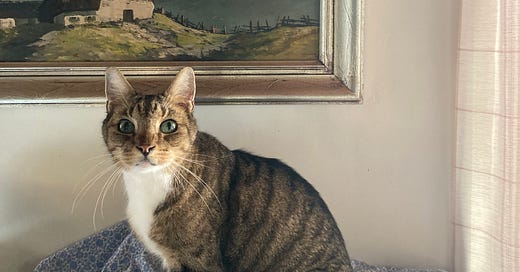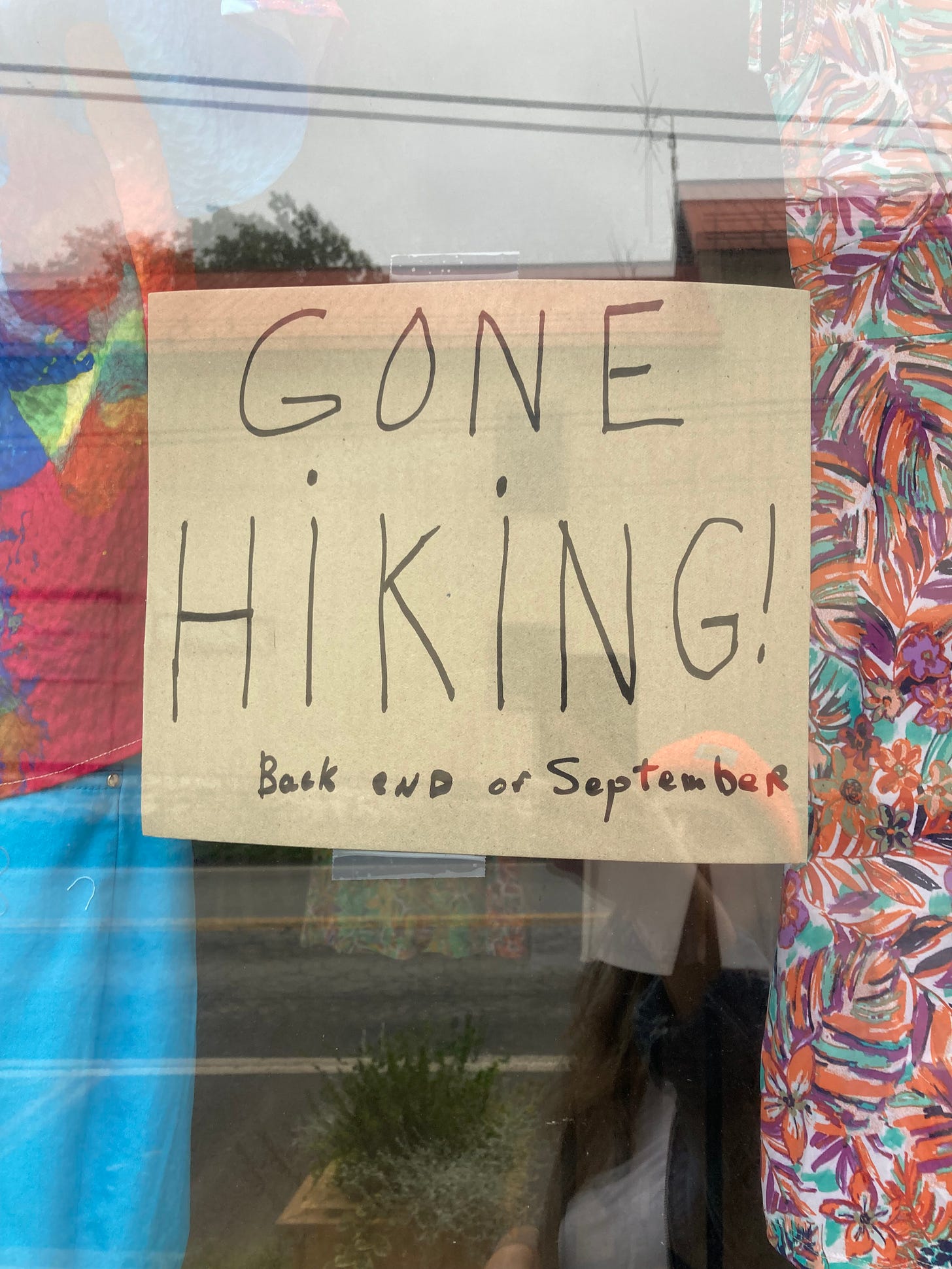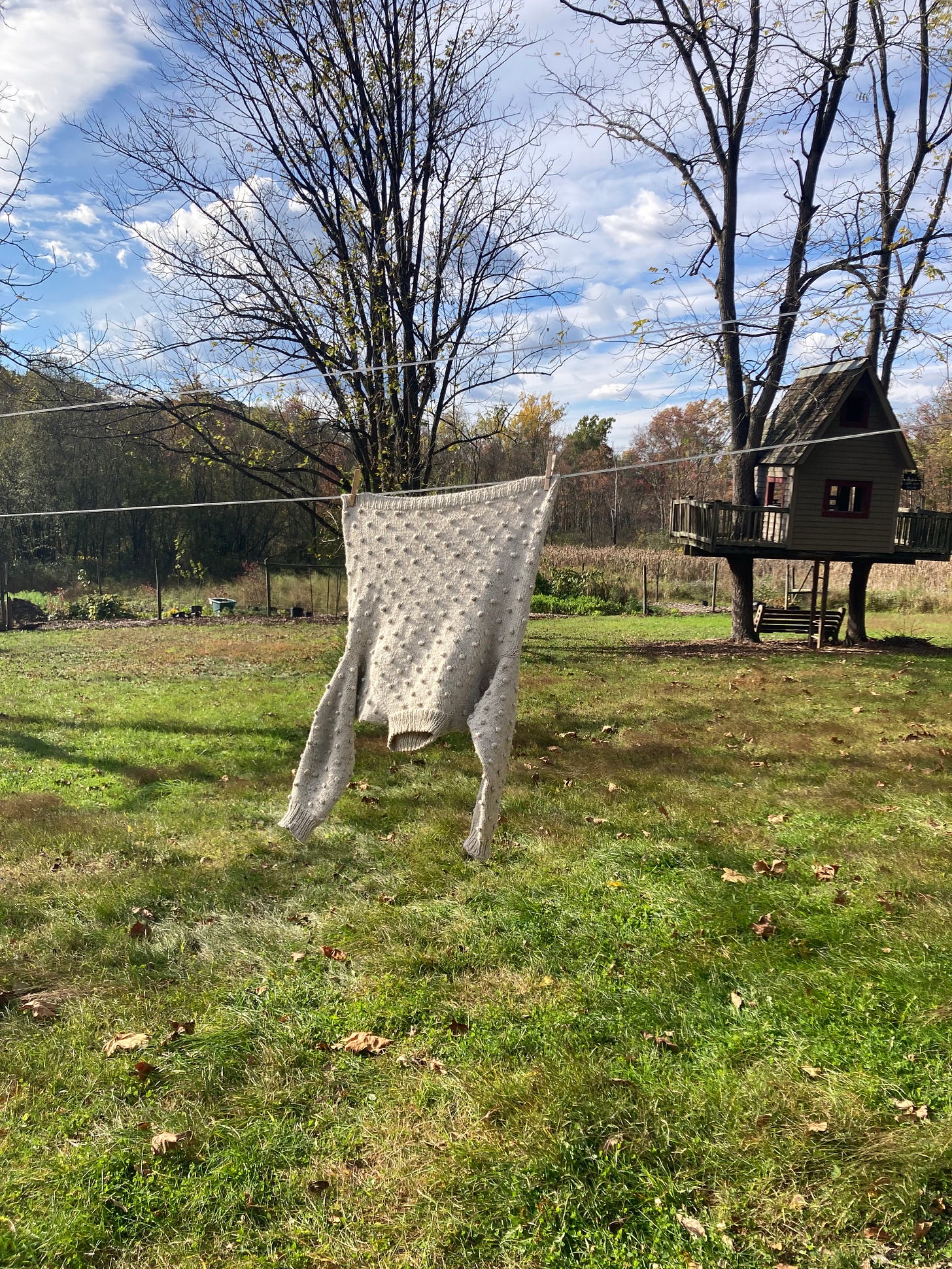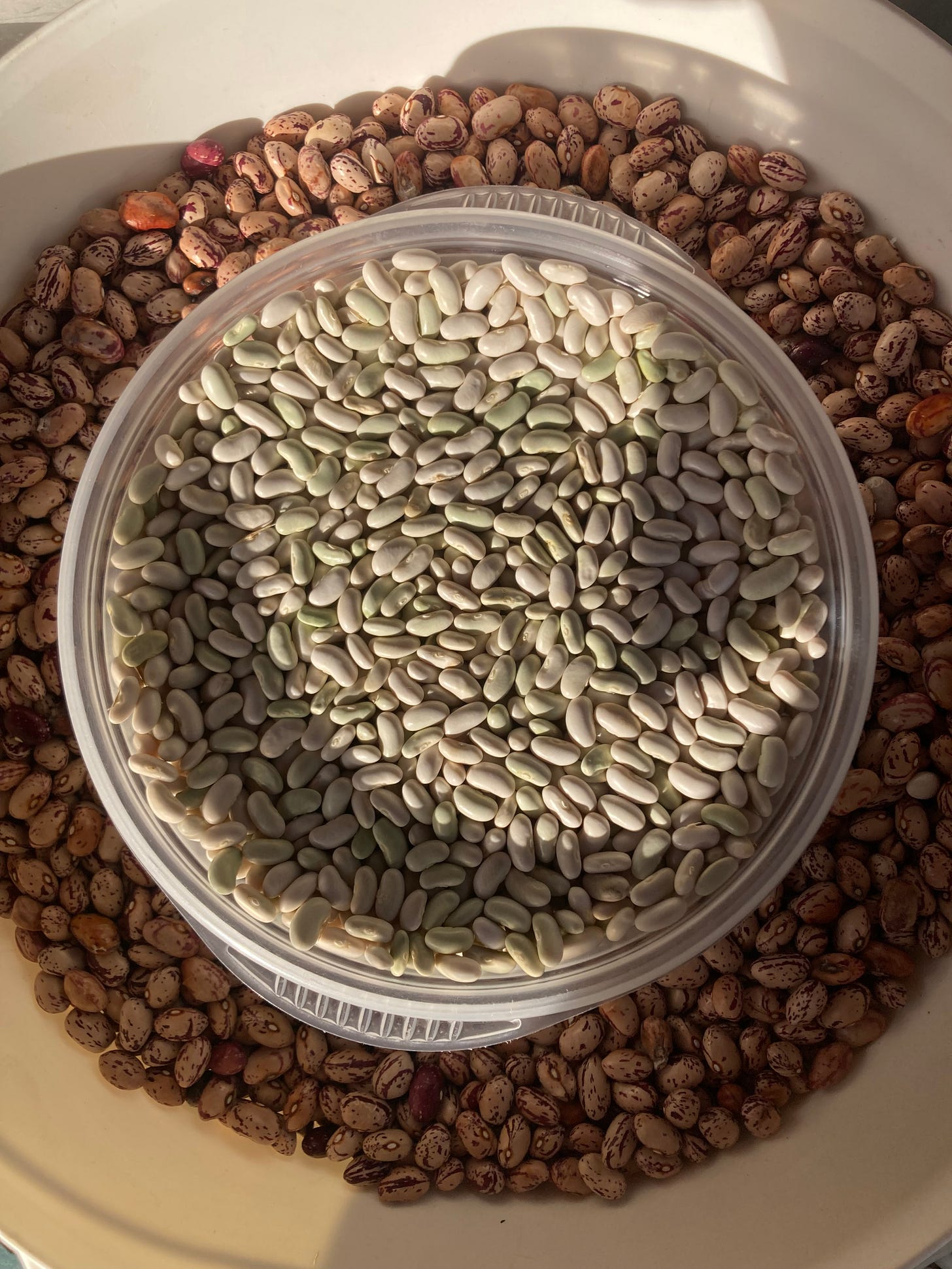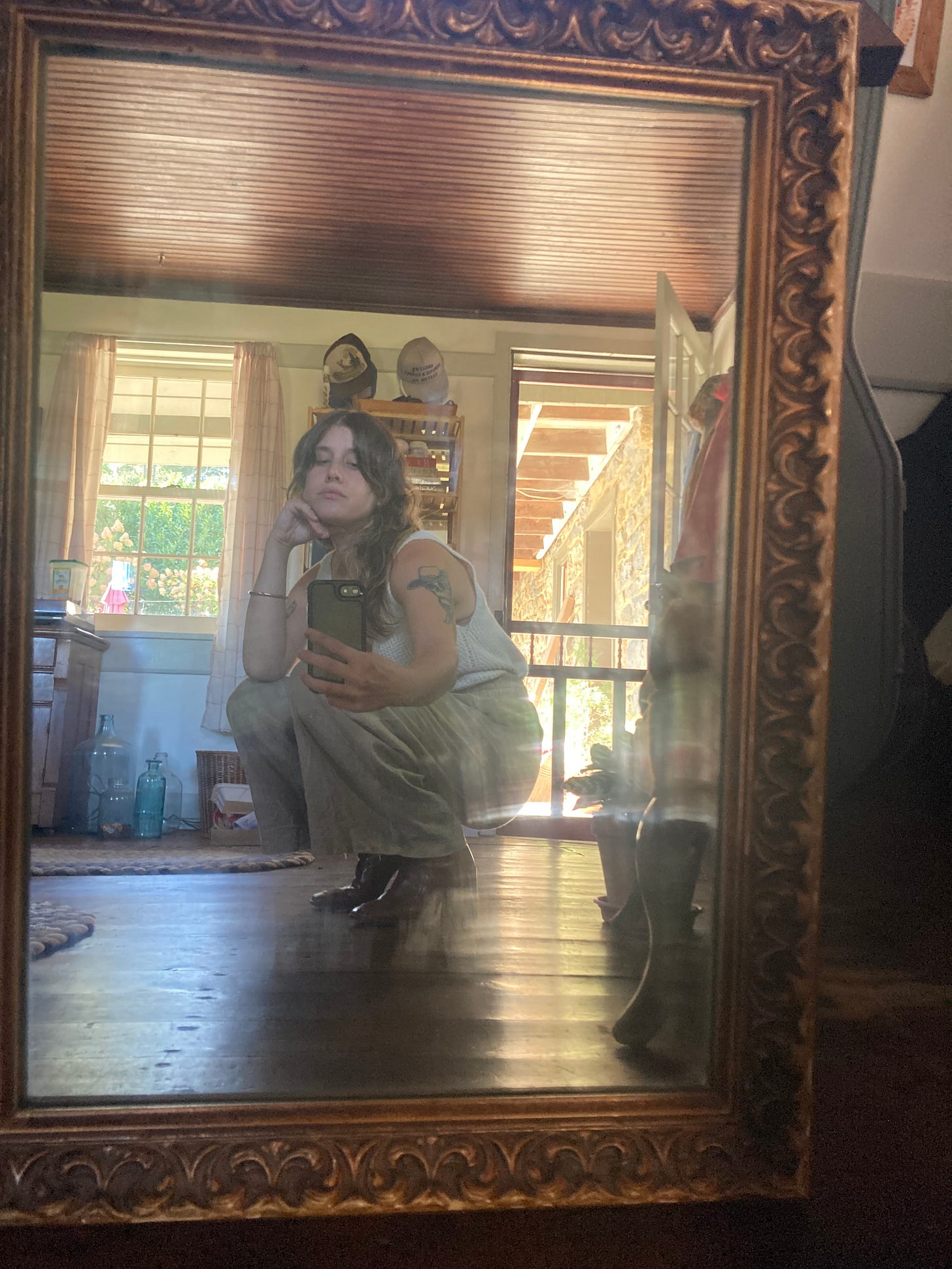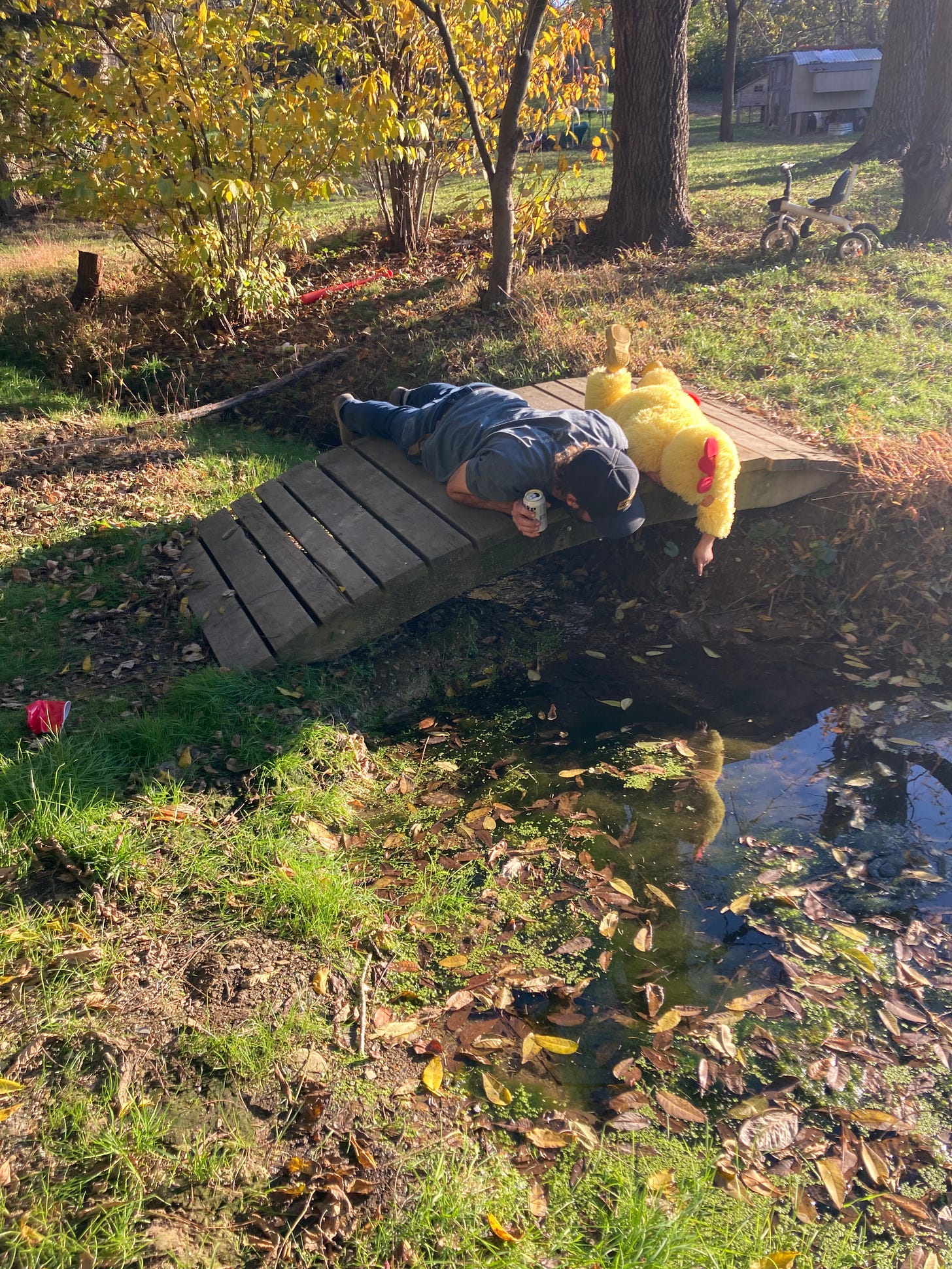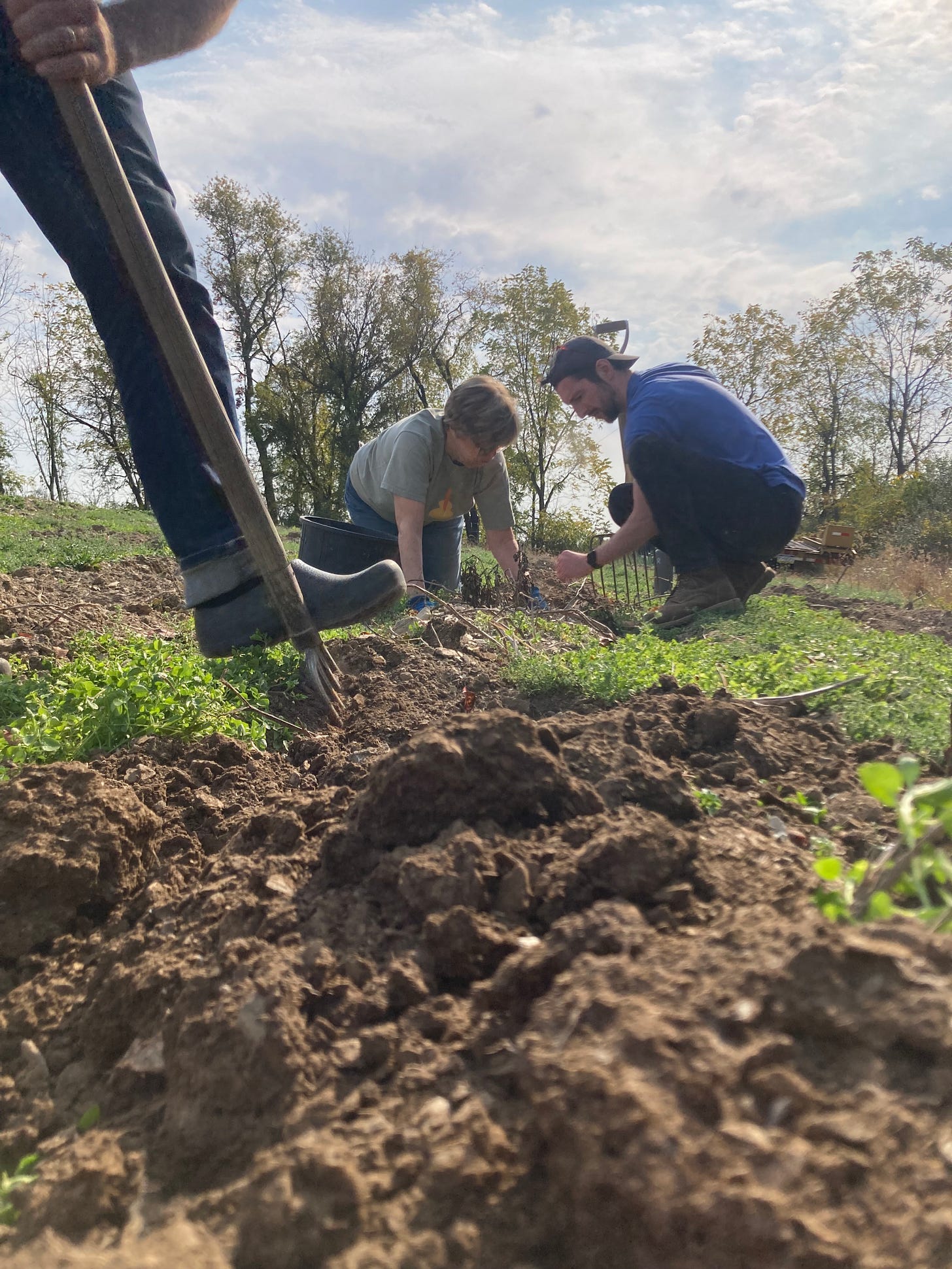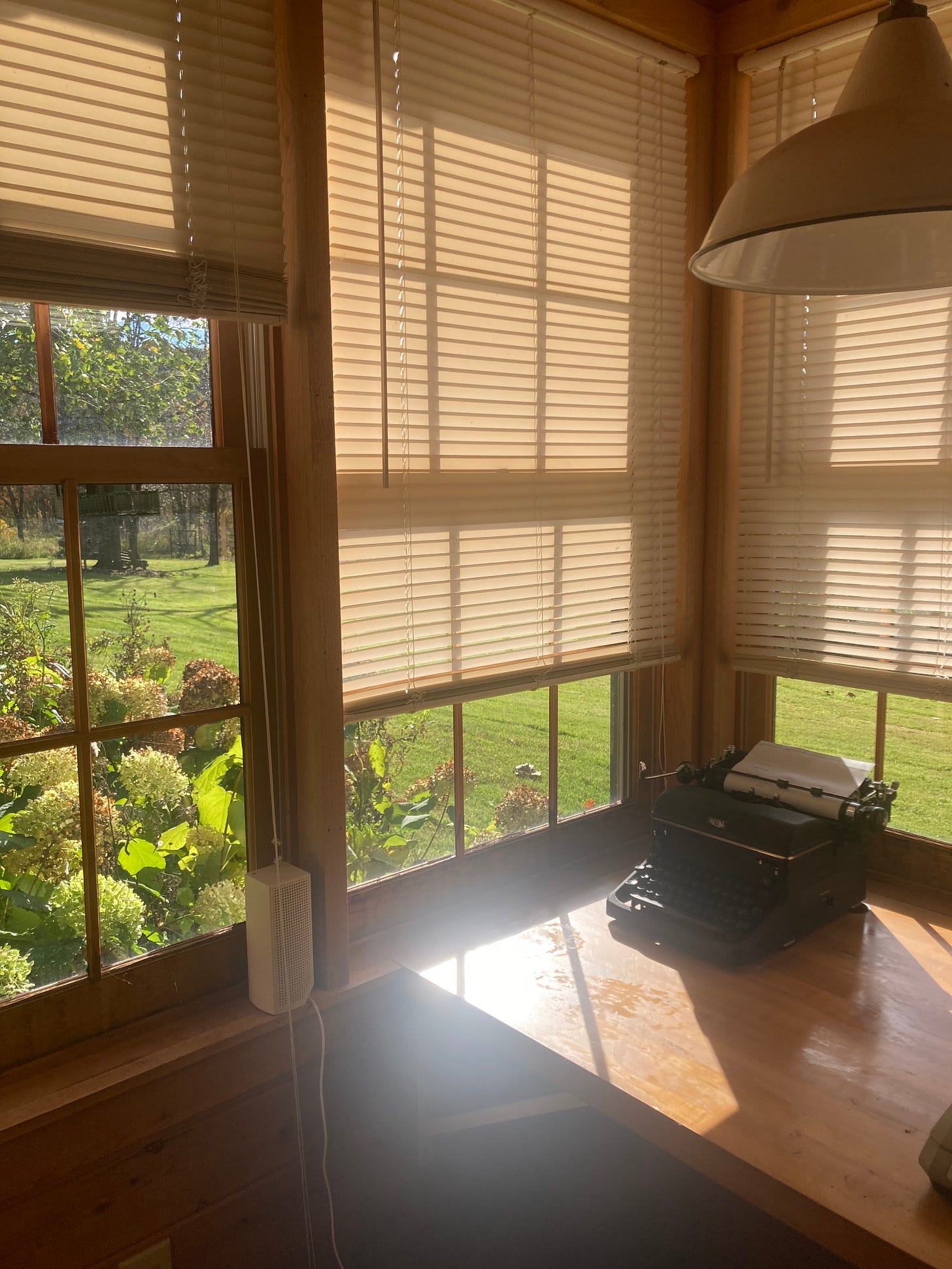The season change is upon us in earnest now. Last week Jared texted me that there was a light frost on the other side of the mountain. Tuesday our sweet potato vine and nasturtiums were showing signs of frost damage. I picked all of the dahlia blooms and put them in a pitcher on the unlit wood stove. Thursday morning we woke to frost. The tomatoes, peppers, and pole bean plants were the latest casualties. We spent yesterday morning digging sweet potatoes and adding the frost-scorched plants to the compost pile. This morning Jared cut a bucket of celosia, likely one of the last, to take to market, and we rolled the sides of the greenhouse down over the frozen zinnias.
As I anticipated, I’m getting to the phase of self employment and season change where a lack of routine feels swirly and strange. It has me interrogating what’s next and applying to several open adjunct faculty positions. But, mostly I’m sitting in my discomfort.
I’ve spent a lot of time these last few weeks making the house comfortable before we move life a bit more indoors. I cleaned the whole house, even scrubbing the unfinished wooden floors. I made a big vat of plant dye with black walnuts that were decaying and covered in maggots which my friend Maia reassured me would likely contribute to a richer dye. I threw stained garments and linens into the fermenting pot and ended up with happy accidents. Last week I put the flannel sheets on the bed as the evening temperatures dropped into the 30s. Soon I will pull the winter clothes out of the attic and begin wearing thermals under all of my clothes.
I’ve been unusually social lately which is not me or at least has not been ever since COVID pushed us into solitude and I decided to stay there. I had lunch with a new friend which inspired me to clean and decorate my office—an unheated room in the back of the wood shop with the best light and most stunning view. My friend Allison came over with her son early one morning and we sipped coffee and went for a walk to look at the chickens. I brought my cousin pot pie, chicken soup, and sourdough bread and in exchange got to hold her one week old daughter who slept the entire time. We celebrated our favorite five-year-old’s birthday by bringing him the best gift we could give a chicken-obsessed kid— a live hen. He named her Hetty and Jared helped him fish critters out of the creek bed to feed her. Friends invited us over for a last minute dinner and we brought a crunchy cabbage salad that I’ve remade every night this week (thinly sliced cabbage, sweet peppers, and fennel, several carrots grated, baby arugula, raw pumpkin seeds, feta, the white and green of a bunch of scallions, and a dressing made of equal parts apple cider vinegar, maple syrup, dijon mustard, and mayo to make it creamy plus fresh ground pepper and some salt to taste). Two new friends from a neighboring farm stopped by and we sat in the cold living room in our sock feet with a row of muddy boots by the door and laughed until we had tears in our eyes and my sides hurt.
Last week I was talking to a friend about The Artist’s Way, which I’ve mentioned before in this newsletter. We were talking about Week Four, which I had forgotten about. That week is the week of reading deprivation which looked entirely different in the early 90s when Julia Cameron originally wrote the book. In newer editions it is called media deprivation to encompass all of the media we take in—social media, videos, emails, this newsletter.
I don’t find value in reading deprivation as a means of finding clarity or listening to your creative voice. Perhaps I say that defensively because I spend the majority of my unstructured time reading. I do value the stillness and silence that I get during my walks or gardening. It’s also why I found Quaker Meeting so comforting. But, I’ll never give up my reading even for a week, even if it promises to help me tap into more inspiration. I highly doubt it would. This year I’ve read a lot and feel the most creatively charged I have in years. I attribute that to several things— my safety, my health, financial stability, ample free time, being sober, but also prioritizing reading.
As is typical in the fall, I’m flying through the books. Since we last spoke, I finished The Shipping News which I loved in spite of some comments about the unlovability of people who are fat or ugly that I find a lazy way to develop a character.
I’ve since read several other books:
Very Cold People by Sarah Manguso which I had to read after loving Liars.
Drifts by Kate Zambreno which I think I would have liked more had I not read The Long Form by Kate Briggs or My Work by Olga Ravn. Although I love an experimental novel about pregnancy and parenthood, I found the book disjointed and unfinished which aligns with the narrator’s discomfort with the looming deadline and incomplete work of her book, also called Drifts.
The English Understand Wool by Helen Dewitt, which you can read in one sitting and is available by New Directions in a hardback reminiscent of a children’s book, was a delight.
Consider the Oyster by MFK Fisher, who is one of my favorite food writers, was predictably excellent.
I finally read My Year of Rest and Relaxation by Ottessa Moshfegh after including her story The Beach Boy in a class last month. I felt lukewarm. My expectations were low. It left me wondering at what point is a character so unlikeable that you just don’t really care about them at all? I preferred Eileen, the only other Moshfegh book I’ve read.
Under the Net by Iris Murdoch was my second Murdoch ever and such a delight that I could not put it down. In a text to my friend Andrew I said that I loved it despite it not being the most remarkable story or characters. I enjoyed it in the way I enjoy a British police procedural—it’s meandering, plotty, predictable, and makes a good moral statement. I will be back for more.
I finally picked Braiding Sweetgrass up again. I’ve been reading it a little at a time to savor it, which is hard for me. I also pulled out a crumpled photocopy of Audre Lorde’s The Transformation of Silence into Language and Action which my brother-in-law’s girlfriend brought to me last time she was visiting from Georgia where she teaches philosophy at a university. I loved seeing what she underlined and annotated which comforted me as I recently lent out a heavily annotated book of my own and wondered whether that would be a distraction to the borrower. I underlined a section of my own which affirms my decision to prioritize translated works these last few years:
And where the words of women are crying to be heard, we must each of us recognize our responsibility to seek those words out, to read them, and share them and examine them in their pertinence to our lives. That we not hide behind the mockeries of separation that have been imposed upon us and which so often we accept as our own. For instance “I can’t possibly teach Black women’s writing––their experience is so different from mine.” Yet how many years have you spent teaching Plato and Shakespeare and Proust? Or another, “She’s a white woman and what could she possibly have to say to me?” Or, “She’s a lesbian. What would my husband say, or my chairman? Or again, “This woman writes of her sons and I have no children.” And all the other endless ways in which we rob ourselves of our selves and each other.
I began working more diligently on my writing project as I am caught in the cyclical trap of wanting to apply to teaching roles and to residencies but need published work to boost my credibility which means I need to write more frequently and for once I need to prioritize submitting. All of that sometimes makes me want to put down the writing and pick up anything else. Maybe you can relate? Nevertheless, it feels good to be working on it again, even if it feels like it may never be done (and it may never be done). It’s getting the practice—the muscle movement—back in my body that feels so good. I’m feeling rededicated to the effort without having any expectations of the outcome.
That reminds me, if you feel stuck on your writing project and want some one-on-one writing help, send me an email. I have room to take on a few more clients for private writing support and feedback. If you get this newsletter in your inbox, reply to the email with your project and your challenge and we can go from there, or email me at corrinmagditch@gmail.com.
Until then,
CM
Some things to tide you over until we meet again
In an unfair world make your life into a work of art from Emmy van Deurzen is a video that popped up on my YouTube feed that I’ve listened to several times now.
This week I shared the poem “Questionnaire” by Wendell Berry with Jared’s cousin Pisie. It’s a poem I’ve returned to over and over again these last few years. It’s a poem I think you really must listen to to feel the impact of it’s words so I will read it to you now if you care to listen:
This past Thursday Evening Craft Club we talked about one of my favorite short stories “The Harvest” By Amy Hempel. If you get a chance to read it, let me know your thoughts in the comments. If you like this story, you should mark your calendars for the next craft club November 14th which will be the last one of the year. I’d love for you to join us.


